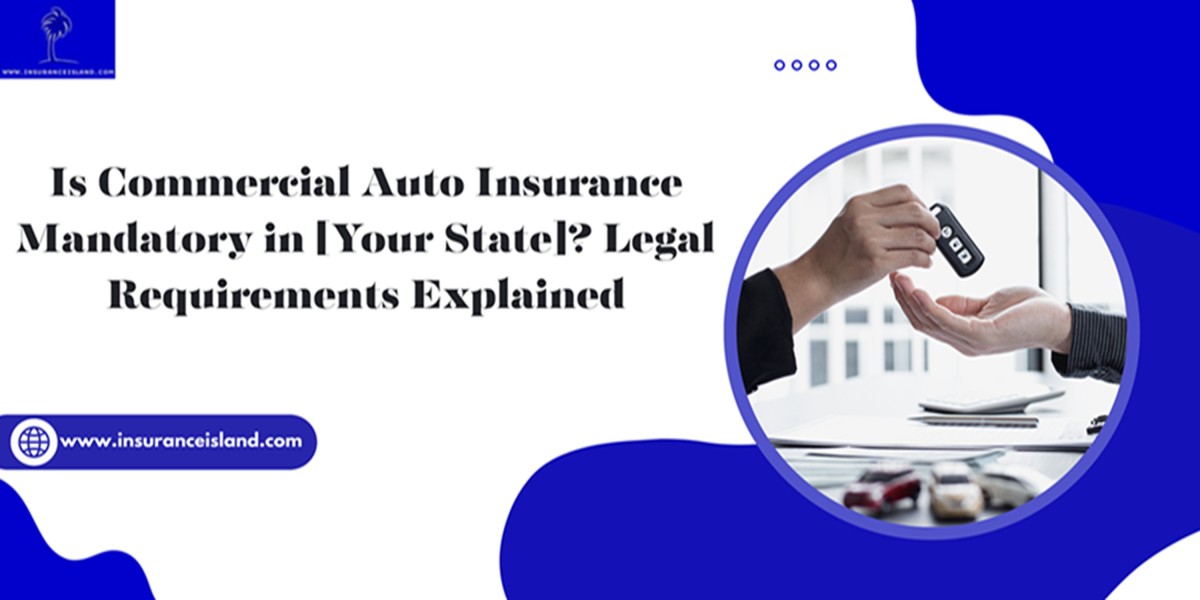Yes, commercial Auto insurance Mandatory in our state.This insurance is very important for all interested people. When running a business that involves the use of vehicles whether it's for deliveries, transporting clients, or hauling equipment, having the right insurance is not just a safety net; it’s often a legal necessity. This article explores Commercial Auto Insurance in Virginia, breaking down whether it’s mandatory, what the legal requirements are, and how you can protect your business from costly liabilities..here the explain legal requirements:
What is Commercial Auto Insurance?
Before delving into legal requirements, it's important to understand what Commercial Auto Insurance entails. This type of insurance provides coverage for vehicles used for business purposes. It differs from personal auto insurance in that it covers vehicles used in work-related activities, including:
Transporting goods or tools
Driving clients or employees
Commercial deliveries
Visiting job sites
Typical commercial auto policies include:
Liability coverage – Covers bodily injury or property damage caused by your vehicle.
Collision coverage – Covers damages to your vehicle from accidents.
Comprehensive coverage – Covers non-collision-related damage (e.g., theft, fire).
Medical payments – Covers injuries to you or your passengers.
Uninsured/underinsured motorist coverage – Protects against drivers who lack sufficient insurance.
If you use your vehicle for any business-related tasks, personal auto insurance will likely not cover accidents or liability claims. That’s why having a Commercial Auto Insurance policy tailored to your business activities is crucial.
Is Commercial Auto Insurance Required by Law?
The Short Answer: Yes, In Most States
Most states mandate Commercial Auto Insurance if you use a vehicle for business. However, the specifics like coverage amounts and required policy types vary from state to state. At a minimum, businesses must typically carry liability coverage to cover bodily injury and property damage caused by a commercial vehicle.
State-by-State Differences
Each state has its own regulations for business vehicle insurance. For example:
California mandates liability coverage with minimum limits of $15,000 per person and $30,000 per accident.
Texas requires a minimum of $30,000 per person, $60,000 per accident, and $25,000 for property damage.
Florida only requires personal injury protection (PIP) and property damage liability (PDL), but commercial vehicles often need additional coverage depending on use.
Understanding your specific state requirements is key. If you’re based in Virginia, the next section is especially for you.
Commercial Auto Insurance Virginia: What You Need to Know
Virginia is unique when it comes to auto insurance laws. While the state doesn’t require vehicle owners to purchase insurance to register a vehicle, it does impose conditions if you choose not to be insured. However, this flexibility doesn’t apply to businesses using vehicles commercially.
Is Commercial Auto Insurance Mandatory in Virginia?
Yes, commercial auto insurance is mandatory in Virginia for any business that owns or operates vehicles for commercial purposes. The state imposes stricter regulations on business vehicles compared to personal ones.
Businesses must meet Virginia's minimum auto insurance coverage requirements:
Bodily injury/death of one person: $30,000
Bodily injury/death of two or more persons: $60,000
Property damage: $20,000
For many commercial vehicles, these minimums are inadequate. In practice, most businesses carry higher coverage amounts due to the higher risk associated with commercial operations.
Additional Requirements
Virginia may also require the following for commercial vehicle operators:
Commercial Driver’s License (CDL) – Required for drivers operating heavy vehicles or transporting hazardous materials.
USDOT Number – Required if you operate commercial vehicles that transport passengers or cargo across state lines.
Intrastate Authority – If you operate only within Virginia, you may still need a Virginia Motor Carrier (MC) number and comply with Virginia Department of Motor Vehicles (DMV) rules.
Failing to maintain commercial auto insurance Virginia coverage can result in fines, suspension of driving privileges, and serious liability risks.
Who Needs Commercial Auto Insurance?
You need Commercial Auto Insurance if you or your employees use vehicles for business purposes. This includes:
Contractors and construction companies
Real estate agents
Landscapers
Delivery and courier services
Trucking and freight operators
Even if you are a sole proprietor using your personal vehicle, if it's being used for business purposes such as transporting tools or making deliveries you are legally required to have Commercial Auto Insurance in most states, including Virginia.
How to Choose the Right Commercial Auto Insurance Policy
Not all Commercial Auto Insurance policies are created equal. When shopping for coverage, consider the following:
1. Type of Vehicles
Are you insuring light-duty vehicles like sedans or heavy-duty trucks? Different types of vehicles have different risk profiles and coverage needs.
2. Type of Business
Some industries such as trucking, towing, or food delivery face higher risks and may require specialized policies.
3. Coverage Limits
Don’t settle for the minimum unless you have very limited exposure. Accidents involving commercial vehicles can result in high-cost claims.
4. Number of Vehicles and Drivers
If your business has multiple vehicles and drivers, you may need fleet insurance or policies that cover hired/non-owned vehicles.
5. State Requirements
As mentioned earlier, commercial auto insurance Virginia has specific coverage thresholds and licensing requirements. Be sure your policy aligns with those.
Cost of Commercial Auto Insurance
The cost of Commercial Auto Insurance varies widely based on several factors:
Type and number of vehicles
Driving history of employees
Business location and operations
On average, small businesses can expect to pay between $1,200 to $2,500 per vehicle annually. However, in Virginia, businesses operating in high-risk industries or urban areas may pay more.To get the best rate, shop around and work with insurance providers who specialize in commercial policies.
Tips for Reducing Your Premium
To manage your commercial auto insurance costs:
Hire Safe Drivers – Good driving records lower your risk profile.
Implement Safety Training – Shows insurers you’re proactively reducing accidents.
Bundle Policies – Combine with general liability or workers’ comp for discounts.
Maintain Vehicles – Regular maintenance prevents costly repairs and accidents.
Increase Deductibles – This lowers premiums, but increases out-of-pocket costs during a claim.
Conclusion
Whether you are operating across multiple states or running a local business in Virginia, Commercial Auto Insurance is not just a box to check, it's a vital layer of protection for your operations. From covering accident damages to satisfying state laws, the right policy ensures your business can run smoothly even when unexpected events occur.
In states like Virginia, where the law is clear and enforcement is strict, businesses must prioritize compliance. Don’t risk financial losses, legal issues, or your company’s reputation by skipping commercial coverage. If you are unsure whether your current policy meets your state's requirements or if you're starting a new venture consult with a licensed insurance agent familiar with commercial auto insurance Virginia laws.








